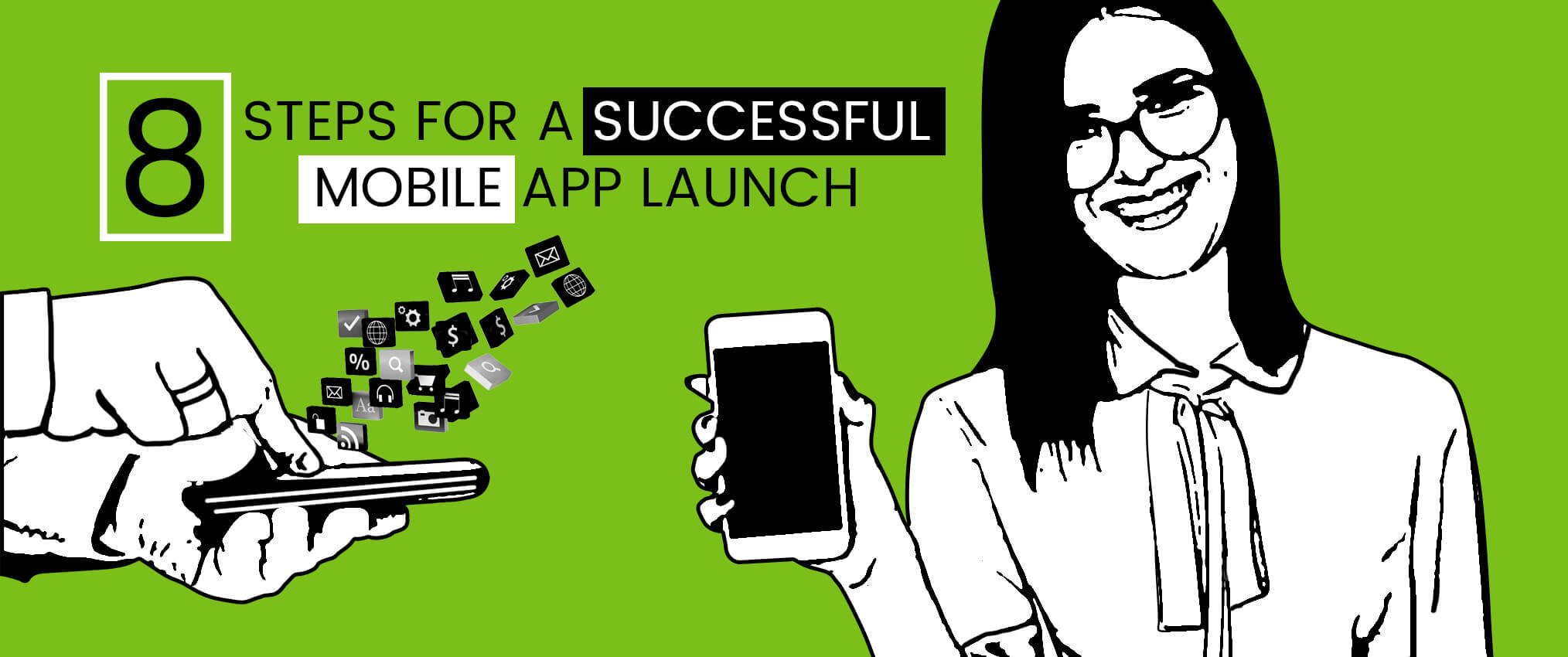Mobile apps have become a necessity for businesses to reach out better and engage with customers, employees and other stakeholders. As more customers and users are dependent on mobiles for seeking information and for getting their tasks accomplished, businesses need mobile apps to leverage this situation. Mobile apps offer an additional advantage to the businesses in terms of user information. They also help the businesses to engage better with the target audience. These are some reasons that prompt businesses to outsource mobile application development services to competent outsourcing partners. Mobile Application launch is an important milestone in positioning it rightly in the target market among the right audience. It has to be meticulously planned. Here are 8 steps to follow for a successful mobile app launch:

Know your target audience
The very first step while launching a mobile app is to ascertain the target audience. Your audience will decide the market position and the strategies to focus upon. Your target audience would also decide the solutions your app would address.
Position yourself
As you opt for custom mobile application development, you will have to position yourself in the market to be effective. After a detailed market research, you must define your market position statement and accordingly set the goals.
Set the goals
Once you have defined your position statement, you can start setting your market goals. These goals will help you plan the launch effectively and measure its effectiveness. Set realistic goals to start with and keep revising the goals. New goals can be set when the earlier ones are achieved. During the launch, the goal to be set will include the expected impact of the launch.
Plan the launch
Once the goals are set, you must start planning the mobile app launch. It is as important and meticulous as a product launch or a website launch. In fact, it is even more challenging because you have an existing brand image to consider.
Plan launch media
Planning the launch media at an earlier stage would help the android application development. Launch media could be online such as popular social media platforms like Facebook and Twitter or television and print media too. This depends upon your target audience.Spread the word
Once the launch media is decided, you can start spreading the word about the launch. Online and offline campaigns that arouse the curiosity can be planned before the launch.
Launch the app
On the planned launch date, launch the mobile app before the target audience. Make it a big deal to capture audience attention and media attention. You can use Facebook live also to reach out to a larger audience during the app launch.
Post-launch follow-up
Whether you are using hybrid mobile app development or native apps, make sure that you conduct a post-launch follow-up to measure the effectiveness of your mobile app launch and understand the customer response to it. This can be used to compare against the goals set earlier. Based on the results, further campaigns can be planned to promote the app.
